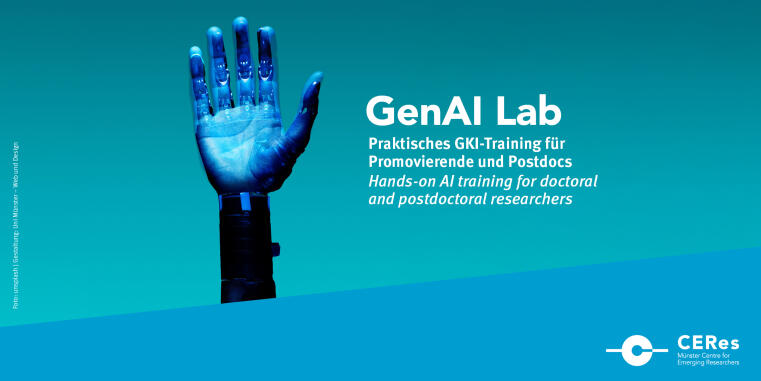
Target group: doctoral and postdoctoral researchers
GenAI Lab is a practice-oriented workshop series designed for doctoral and postdoctoral researchers who want to explore the potential of Generative AI (GenAI) technology in their academic work. Each workshop focuses on a specific area and includes practical examples or case studies applicable across disciplines. Participants will engage in interactive activities, hands-on exercises (including prompting techniques), and reflective discussions.
This training is suitable for:
- Curious beginners with little to no prior knowledge or hands-on experience who wish to make their research activities more efficient, impactful, and innovative using GenAI tools.
- Basic practitioners with some knowledge and application experience who are looking for deeper insights into specific GenAI tools and want to improve their use without going into too much technical detail.
Please review the individual workshop descriptions to check whether a given session matches your current level of proficiency with generative AI tools.
Requirements: Participation is open to those who have secured their spot, belong to the target group, and have completed the preparatory survey. The survey gathers information about prior experience with generative AI tools and expectations, enabling the facilitators to tailor the content and examples as closely as possible to participants’ needs.
Die Sprache des Workshop-Titels gibt an, in welcher Sprache der Workshop durchgeführt wird. // The language of the workshop title indicates the language in which the workshop will be delivered.
